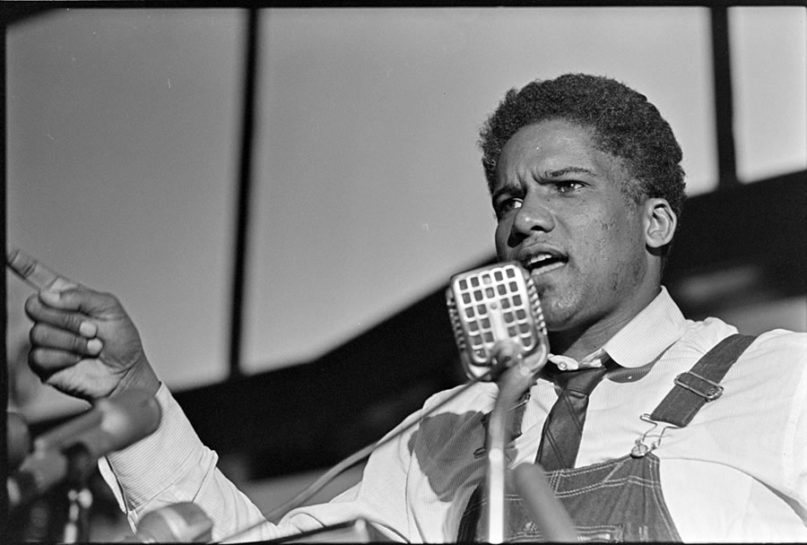Funded by a grant from the Theology Program, Sacred Writes is a project based at Northeastern University dedicated to supporting scholars of religion in their efforts to share their research and expertise with the broader public.
A Sacred Writes-funded media partnership between Religion News Service and Dr. Matthew Cressler of the College of Charleston—whose teaching and writing revolves around the intersection of religion, race, and racism—produced a story on “the Black Manifesto,” “a radical proposal for racial justice” spearheaded by James Forman in 1969. The article reflects on Forman’s call for reparations from white churches and synagogues and examines the renewed discussion around reparations by religious groups, 50 years later.
On a Sunday morning in May of 1969, as clergy processed into the sanctuary of New York’s august Riverside Church, civil rights activist James Forman vaulted into the pulpit to demand $500 million in reparations for the mistreatment of African Americans from white churches and synagogues.
At the time, Forman’s interruption represented the high point for the reparations movement. A week before, Forman had debuted a radical proposal for racial justice known as “the Black Manifesto” for 500 black activists gathered in Detroit for the National Black Economic Development Conference.
“(W)e know that the churches and synagogues have a tremendous wealth,” the manifesto stated, “and its membership, white America, has profited and still exploits black people.”
The conference determined, by a 187-63 vote, that it was time for white Christians and Jews to pay reparations and demonstrate a willingness to fight “the white supremacy and racism which has forced us as black people to make these demands.”
Riverside, then a mostly white liberal Protestant congregation whose neo-Gothic landmark building was financed by John D. Rockefeller Jr., would be deeply divided over the next few years over Forman’s challenge. As the activist brought his manifesto to other congregations and denominations, Riverside established a lecture series and a “Fund for Social Justice” that aimed to raise $450,000 over three years to help the poor in the local community. It fell short of the goal by almost $100,000.
The Black Manifesto’s demands never caught fire in the broader U.S. religious community. The Rev. Gayraud Wilmore, a black Presbyterian leader in New York City in 1969, recalled 50 years later how religious institutions responded.
“I saw them withering and unable to step forward and say ‘Let’s be the church,’” said Wilmore, now 98. “I saw no bold action taken on our side to go along with the bold action Forman was taking.”
Five decades later, the reparations debate has reentered the national spotlight, with some religious institutions leading the way.







